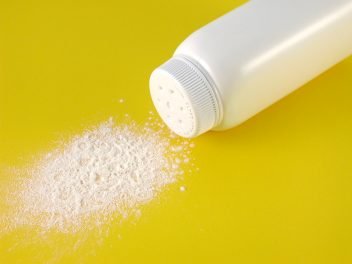Is Talc Really As Harmful as it’s stated to be?
July 17, 2019 | Wednesday | Views | By Ankit Kankar
Back in the 1980’s, every home that had a baby also had one essential baby care product- the talcum powder. Babies were dusted generously with this pleasant smelling powder immediately after their bath. Moms of that generation still get nostalgic when they smell the classic ubiquitous fragrance of Johnson's baby powder- the only brand which existed then.
However despite the long history of the safe use of talc, recently questions have been raised regarding the safety of talc in consumer products. New parents are now increasingly confused about whether to use talc or not.
Image Source : Drug Watch
Does talc cause cancer?
With the recent lawsuits against Johnson and Johnson baby talcum powder claiming that long term use of talc on genitals can cause ovarian cancer, the talc has been under the radar. Another concern was a plausible link between cancer in and around the lungs on inhalation of asbestos which is a substance found in the natural form of talc.
However recent studies have found no link between talc and ovarian cancer. In spite of the Johnson and Johnson baby powder cancer link, the company still continues the use of talc in their products as repeated tests have reaffirmed the safety of their products.
Even in India, the Johnson & Johnson baby powder cancer news made headway with the regulator asking the company to stop using huge quantities of their raw materials at their Baddi plant in Himachal Pradesh and Mulund plant in Mumbai, until tests proved that their talc was free of asbestos.
With the government tests confirming the absence of asbestos in their products, quashing the Johnson baby powder cancer allegation yet again, the company has resumed production in both the plants.
So what is talc?
Talc is basically a mineral that comes from rock deposits all over the planet. It is mined like any other mineral. Talc is one of the softest minerals available and only the highest quality talc is used for baby talcum powder. Talc is an inert ingredient which means it doesn’t generate any chemical reaction when ingested or used on the skin.
The main uses of baby talcum powder include
- It absorbs excess moisture
- Eliminates friction
- Leaves a refreshing and lingering fragrance
- Keeps a baby cool and comfortable
What kind of talc should I use for my baby?
- It is recommended to use only pharmaceutical grade of talc.
- The talc must be of high purity and should be mined in certified locations from select deposits to relatively large non respirable particle size.
- It must meet the USFDA standards and be absolutely free of carcinogens like asbestos and asbestiform fibers.
- It must be dermatologically tested and hypo allergic.
The ingredients in baby powders like that of Johnsons & Johnsons have been evaluated by scientific and medical experts. They have been found to meet all the above standards without compromising on the efficacy and potency of the product, thereby negating the Johnson baby powder cancer connection.
So should you use talc?
My answer to this question is- why not? While talc may not necessarily be needed to dry out your baby’s skin after a bath, which a soft towel can do well enough, it must be used with discretion. When we buy any product, don’t we always read the instructions on how to use the product? The same goes for talcum powder as well. For those who may have actually skipped this part, I have mentioned them below
- Hold the container away from your baby and tip a little on your hand. Rub the powder between your palms and dab it on your baby’s skin.
- Never sprinkle the talc directly from the container on your baby’s body.
- Keep the container at a safe distance away from your baby, while drying after a bath. You don't want it to accidentally fall over your lil one and shower your baby with talc.
- Once you finish with talc, close the container tightly and keep it out of reach.
- Talcum powder does not protect against nappy rash, hence do not apply the same around your baby's intimate areas. Instead, use a barrier cream.
While we know that all moms want the best for their babies, as mothers we also need to be equipped with the right information so that we are not actually propagating a chain of incorrect facts. I hope this article has helped allay the concerns you had in mind regarding the Johnson & Johnson baby powder cancer link.









